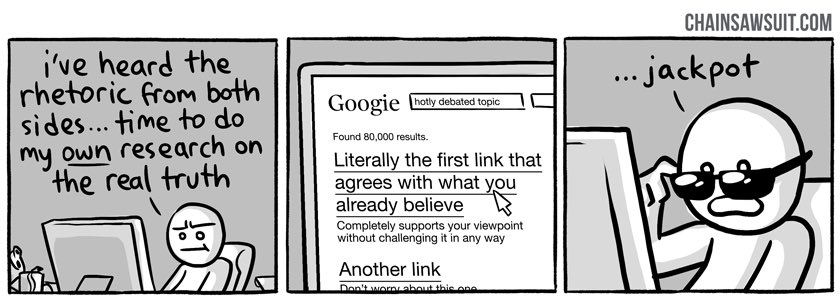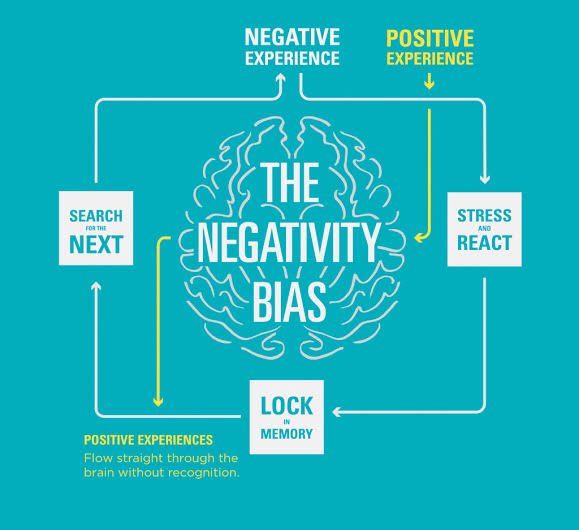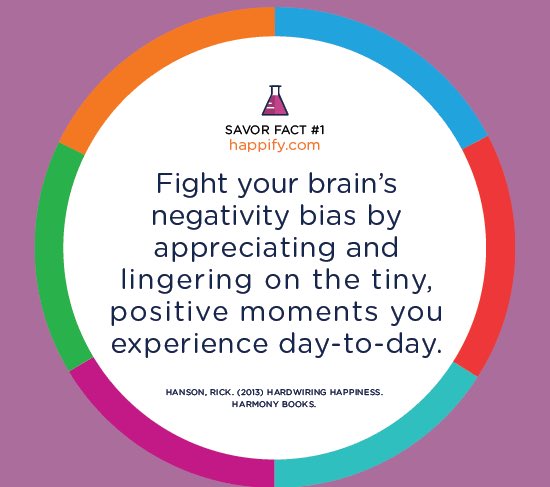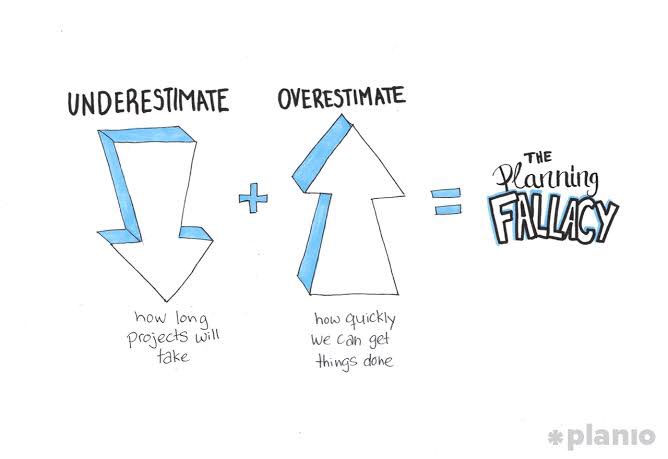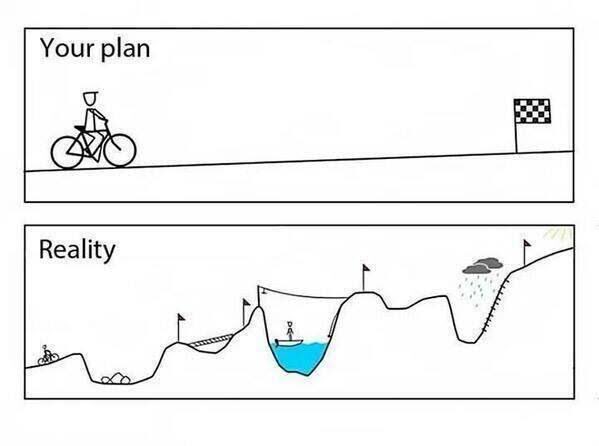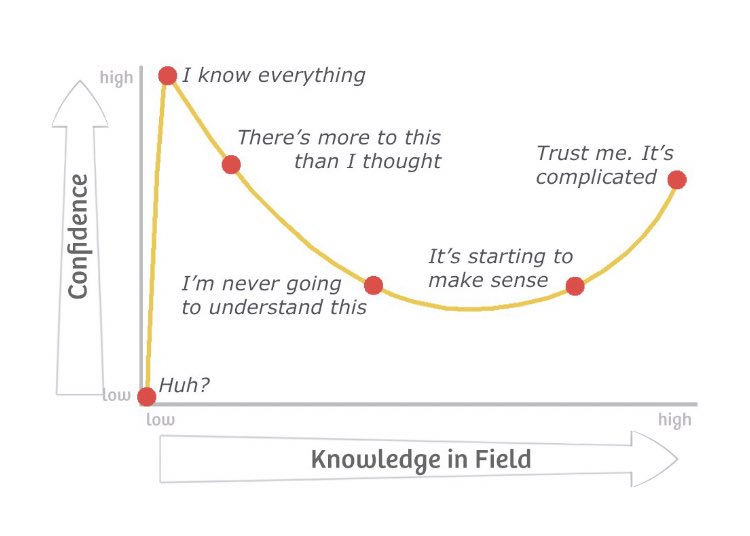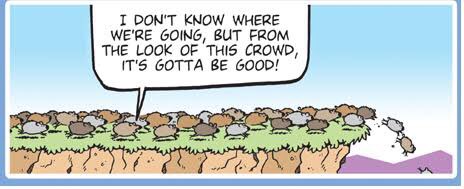7 Cognitive Biases That Ruin Your Decision Making Process
(A thread https://abs.twimg.com/emoji/v2/... draggable="false" alt="🧵" title="Thread" aria-label="Emoji: Thread">)
https://abs.twimg.com/emoji/v2/... draggable="false" alt="🧵" title="Thread" aria-label="Emoji: Thread">)
A cognitive bias is a systematic pattern of deviation from rationality in judgment.
Let’s take a look at what they are, when they happen, and how to counteract them. https://abs.twimg.com/emoji/v2/... draggable="false" alt="👇🏿" title="Rückhand Zeigefinger nach unten (dunkler Hautton)" aria-label="Emoji: Rückhand Zeigefinger nach unten (dunkler Hautton)">
https://abs.twimg.com/emoji/v2/... draggable="false" alt="👇🏿" title="Rückhand Zeigefinger nach unten (dunkler Hautton)" aria-label="Emoji: Rückhand Zeigefinger nach unten (dunkler Hautton)">
(A thread
A cognitive bias is a systematic pattern of deviation from rationality in judgment.
Let’s take a look at what they are, when they happen, and how to counteract them.
Decisions are the frequent fabric of our daily design, everything that contributes to a life with value comes down to one thing - making good decisions.
Cognitive biases undermine our ability to make choices that are rational, intelligent, and in our best interests.
How? https://abs.twimg.com/emoji/v2/... draggable="false" alt="👇🏿" title="Rückhand Zeigefinger nach unten (dunkler Hautton)" aria-label="Emoji: Rückhand Zeigefinger nach unten (dunkler Hautton)">
https://abs.twimg.com/emoji/v2/... draggable="false" alt="👇🏿" title="Rückhand Zeigefinger nach unten (dunkler Hautton)" aria-label="Emoji: Rückhand Zeigefinger nach unten (dunkler Hautton)">
Cognitive biases undermine our ability to make choices that are rational, intelligent, and in our best interests.
How?
Confirmation Bias
The tendency to search, interpret, favor and recall information that supports one’s prior beliefs.
Counteract:
- Be objective in your choices.
- Consider other views and alternatives.
The tendency to search, interpret, favor and recall information that supports one’s prior beliefs.
Counteract:
- Be objective in your choices.
- Consider other views and alternatives.
Negative Bias
The tendency to give more attention and weight to negative news than to the positive ones.
We often:
- Recall and ruminate insults more than compliments.
- Respond more emotionally and physically to hostile stimuli.
- Brood over traumatic or unpleasant events more.
The tendency to give more attention and weight to negative news than to the positive ones.
We often:
- Recall and ruminate insults more than compliments.
- Respond more emotionally and physically to hostile stimuli.
- Brood over traumatic or unpleasant events more.
Progress Bias
The tendency to overestimate the effects of our positive actions and underestimate the effects of negative actions.
Remember when you checked the mirror hoping to see fully developed abs after doing two sit-ups? https://abs.twimg.com/emoji/v2/... draggable="false" alt="😂" title="Gesicht mit Freudentränen" aria-label="Emoji: Gesicht mit Freudentränen">
https://abs.twimg.com/emoji/v2/... draggable="false" alt="😂" title="Gesicht mit Freudentränen" aria-label="Emoji: Gesicht mit Freudentränen">
- Be accountable.
- Monitor progress daily.
The tendency to overestimate the effects of our positive actions and underestimate the effects of negative actions.
Remember when you checked the mirror hoping to see fully developed abs after doing two sit-ups?
- Be accountable.
- Monitor progress daily.
Planning Fallacy
The tendency to underestimate the amount of time needed to complete a future task.
Always:
- Expect the unexpected.
- Use your work history as a guide.
- Ask a neutral party to help with time estimates.
The tendency to underestimate the amount of time needed to complete a future task.
Always:
- Expect the unexpected.
- Use your work history as a guide.
- Ask a neutral party to help with time estimates.
Dunning-Kruger Effect
The tendency to overestimate one’s knowledge or ability in a specific field (when there’s a mismatch between the amount of confidence one exhibits, and their expertise).
Avoid by:
- Practicing self awareness.
- Being confident - yet honest and humble.
The tendency to overestimate one’s knowledge or ability in a specific field (when there’s a mismatch between the amount of confidence one exhibits, and their expertise).
Avoid by:
- Practicing self awareness.
- Being confident - yet honest and humble.
Bandwagon Effect
The tendency people have to adopt a certain behavior, style, or attitude simply because everyone else is doing it.
Do:
- consider alternative options that go against the majority view.
- Make decisions in an environment where you don’t feel pressured by others.
The tendency people have to adopt a certain behavior, style, or attitude simply because everyone else is doing it.
Do:
- consider alternative options that go against the majority view.
- Make decisions in an environment where you don’t feel pressured by others.
Illusory Correlation Bias
The tendency to erroneously assume a cause and effect relationship that does not actually exist.
A typical example - SARS officials stereotyping youths that wear chains and use iPhones as yahoo boys.
Also, I hope astrologers don’t see this one https://abs.twimg.com/emoji/v2/... draggable="false" alt="😉" title="Zwinkerndes Gesicht" aria-label="Emoji: Zwinkerndes Gesicht">.
https://abs.twimg.com/emoji/v2/... draggable="false" alt="😉" title="Zwinkerndes Gesicht" aria-label="Emoji: Zwinkerndes Gesicht">.
The tendency to erroneously assume a cause and effect relationship that does not actually exist.
A typical example - SARS officials stereotyping youths that wear chains and use iPhones as yahoo boys.
Also, I hope astrologers don’t see this one
Learn more:
https://jamesclear.com/illusory-correlation
https://jamesclear.com/illusory-... href=" https://www.verywellmind.com/what-is-the-bandwagon-effect-2795895
https://www.verywellmind.com/what-is-t... href=" https://positivepsychology.com/3-steps-negativity-bias
https://positivepsychology.com/3-steps-n... href=" https://en.m.wikipedia.org/wiki/List_of_cognitive_biases
RT">https://en.m.wikipedia.org/wiki/List... & comment your favorite bias - let’s chat.
Follow @tea_skant for more quality threads https://abs.twimg.com/emoji/v2/... draggable="false" alt="❤️" title="Rotes Herz" aria-label="Emoji: Rotes Herz">
https://abs.twimg.com/emoji/v2/... draggable="false" alt="❤️" title="Rotes Herz" aria-label="Emoji: Rotes Herz">
10/10
https://jamesclear.com/illusory-correlation
RT">https://en.m.wikipedia.org/wiki/List... & comment your favorite bias - let’s chat.
Follow @tea_skant for more quality threads
10/10

 Read on Twitter
Read on Twitter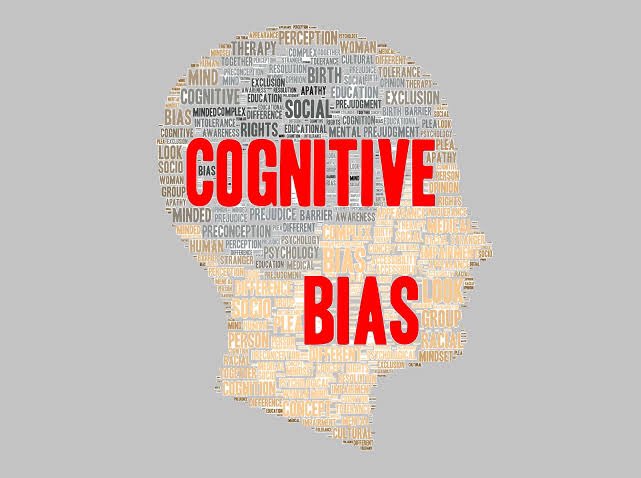 ) A cognitive bias is a systematic pattern of deviation from rationality in judgment.Let’s take a look at what they are, when they happen, and how to counteract them. https://abs.twimg.com/emoji/v2/... draggable="false" alt="👇🏿" title="Rückhand Zeigefinger nach unten (dunkler Hautton)" aria-label="Emoji: Rückhand Zeigefinger nach unten (dunkler Hautton)">" title="7 Cognitive Biases That Ruin Your Decision Making Process(A thread https://abs.twimg.com/emoji/v2/... draggable="false" alt="🧵" title="Thread" aria-label="Emoji: Thread">) A cognitive bias is a systematic pattern of deviation from rationality in judgment.Let’s take a look at what they are, when they happen, and how to counteract them. https://abs.twimg.com/emoji/v2/... draggable="false" alt="👇🏿" title="Rückhand Zeigefinger nach unten (dunkler Hautton)" aria-label="Emoji: Rückhand Zeigefinger nach unten (dunkler Hautton)">" class="img-responsive" style="max-width:100%;"/>
) A cognitive bias is a systematic pattern of deviation from rationality in judgment.Let’s take a look at what they are, when they happen, and how to counteract them. https://abs.twimg.com/emoji/v2/... draggable="false" alt="👇🏿" title="Rückhand Zeigefinger nach unten (dunkler Hautton)" aria-label="Emoji: Rückhand Zeigefinger nach unten (dunkler Hautton)">" title="7 Cognitive Biases That Ruin Your Decision Making Process(A thread https://abs.twimg.com/emoji/v2/... draggable="false" alt="🧵" title="Thread" aria-label="Emoji: Thread">) A cognitive bias is a systematic pattern of deviation from rationality in judgment.Let’s take a look at what they are, when they happen, and how to counteract them. https://abs.twimg.com/emoji/v2/... draggable="false" alt="👇🏿" title="Rückhand Zeigefinger nach unten (dunkler Hautton)" aria-label="Emoji: Rückhand Zeigefinger nach unten (dunkler Hautton)">" class="img-responsive" style="max-width:100%;"/>
